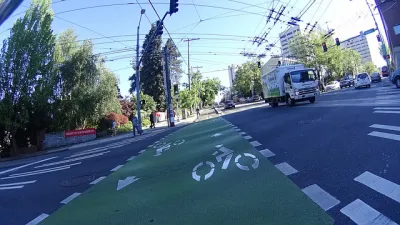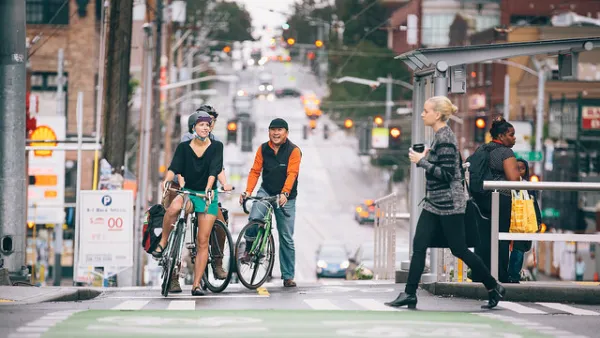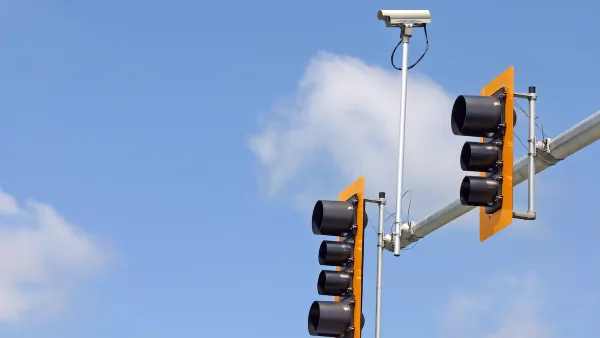Almost half of bike helmet citations in the city are issued to people experiencing homelessness.

Seattle's all-ages bicycle helmet law has long prompted criticism, and new data shows uneven enforcement that disproportionately affects the unhoused. Since 2017, Seattle police have only given out 117 citations for lack of helmet use. Of those, 50 or more were given to homeless people, with that number growing to 60% in 2020. This low-end estimate, arrived at through an analysis of citations and other public records, shows the disproportionate burden of the helmet law, with enforcement primarily targeted at people least able to pay the ticket—or purchase a helmet. When a law is consistently flouted by a large percentage of the population, police can "pick and choose who they stop," says Tom Fucoloro of the Seattle Bike Blog. This vast amount of discretion opens the door to discrimination and uneven enforcement.
Seattle's bike helmet citations are indicative of a broader trend. Studies in other parts of the country show similar disparities in the enforcement of low-level offenses such as jaywalking, prompting questions about the unintended consequences of this kind of policing and how such unwarranted stops amount to excuses to "stop-and-frisk." Barb Chamberlain, active transportation director for the Washington State Department of Transportation, sees a pattern. "There’s a large bucket that the bike helmet thing fits into," she says, "which is the way we’ve criminalized normal human behavior."
FULL STORY: Nearly half of Seattle’s helmet citations go to homeless people

National Parks Layoffs Will Cause Communities to Lose Billions
Thousands of essential park workers were laid off this week, just before the busy spring break season.

Retro-silient?: America’s First “Eco-burb,” The Woodlands Turns 50
A master-planned community north of Houston offers lessons on green infrastructure and resilient design, but falls short of its founder’s lofty affordability and walkability goals.

Delivering for America Plan Will Downgrade Mail Service in at Least 49.5 Percent of Zip Codes
Republican and Democrat lawmakers criticize the plan for its disproportionate negative impact on rural communities.

Test News Post 1
This is a summary

Test News Headline 46
Test for the image on the front page.

Balancing Bombs and Butterflies: How the National Guard Protects a Rare Species
The National Guard at Fort Indiantown Gap uses GIS technology and land management strategies to balance military training with conservation efforts, ensuring the survival of the rare eastern regal fritillary butterfly.
Urban Design for Planners 1: Software Tools
This six-course series explores essential urban design concepts using open source software and equips planners with the tools they need to participate fully in the urban design process.
Planning for Universal Design
Learn the tools for implementing Universal Design in planning regulations.
EMC Planning Group, Inc.
Planetizen
Planetizen
Mpact (formerly Rail~Volution)
Great Falls Development Authority, Inc.
HUDs Office of Policy Development and Research
NYU Wagner Graduate School of Public Service





























